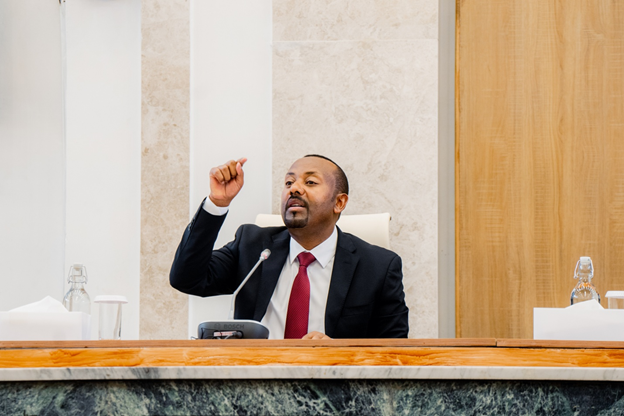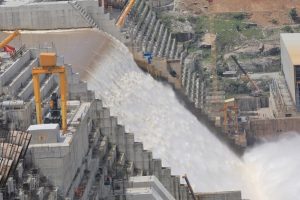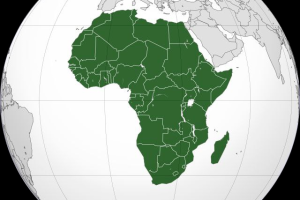
During the 21st session of the House of Peoples Representatives last week, Prime Minister Abiy Ahmed (PhD) was asked to explain and respond to the queries of the MPs.
There were questions on the economy, inflation and cost of living rising relentlessly and the impact on the lives of the more disadvantaged part of society, the situation of the security and peace of the nation with frequent clashes in several parts of the country that are creating a lot of obstacles to achieve the development plans of the country.
Questions that relate to the diplomatic efforts of the government were also posed to the premier about the country’s quest for access to the sea, the full implementation of the terms of the Pretoria Peace Agreement, and what the government intends to do to fix the rivalries between the two factions created in Tigray between the leader of the interim administration and the leader of the TPLF. The premier gave an extended explanation of all of the issues that were raised.
Among the issues on which the premier dealt at length was the quest of Ethiopia for access to sea, the problems that are raised with regard to the Grand Ethiopian Renaissance Dam, GERD, and the Pretoria Peace Agreement that ended the war in Tigray.
First of all, the premier said, that Ethiopia is very much interested in having good and peaceful relations with possibly every country in the world, both near and far. It also wants that there be peace everywhere particularly in its neighboring countries. He said when there were conflicts in South Sudan, it was Ethiopia that jumped in to restore peace through negotiations before things reached a point of no return; when there were hostilities in Sudan, it was again Ethiopia that tried to bring together the two warring parties to a table and negotiate and the same can be said with Somalia as well when it was attacked by groups that are extremists and wanted to do away with the government of Somalia.
Ethiopia, the premier pointed out does not engage in hostilities because it knows any disruption of peace throughout the region could bring only further negative results and more hostilities and violence. Ethiopia understands well what the impacts of war are because it has experimented with it repeatedly over the last decades.
During the past six, or seven years, he noted, Ethiopia has not shot even a single bullet against any of its neighbors unlike the previous governments, be it the military government of the seventies and eighties, or the EPRDF government that existed before the advent of Prosperity Party to power. The previous regimes have been involved in hostilities against South Sudan, Sudan itself, Eritrea, and Somalia at different epochs. This government has not been involved in any conflict with its neighbors not because there were no reasons or issues that could beget such a result, but because it believes that we always need to be cautious and not jump into warfare before exhausting all avenues of peace talks and negotiations. This government, he continued, knows very well the huge benefits of peace and that any misunderstanding or disputes could be settled peacefully through talks and discussions.
One of the examples of this principle is the Pretoria Peace Agreement where Ethiopia accepted to halt the war in the north even if it was about a few days away from total victory but accepted to sit down around a table and discuss the terms of the deal. In fact, the Federal Government of Ethiopia accepted with pleasure such an arrangement with the forces of TPLF even though it could have pursued the path of more hostilities and completed the conflict with the total capitulation of its adversary. He said this would not have been the choice of any other government but us because we want to spare the lives of even a few people from death and wounds when it is possible to do it in the name of peace. In the final analysis, those who were fighting us were our own brothers and sisters. We do not leave any stone unturned in the name of peace and it is better to sign a bad peace agreement than continue with the bloodshed and destruction of a war. It is very well known that no one benefits from wars and conflicts but those who are waiting for such an eventuality and pushing to fish in troubled waters. There are no issues that can’t be settled with negotiations and peaceful diplomatic moves based on clear international principles and practices.
In this regard, the Ankara Declaration is also another example of Ethiopia’s quest and commitment to peace with its neighbors. If there have been conflicts that involved Ethiopia in the past few years, it is because it has the responsibility obligation, and mandate to safeguard the sovereignty and territorial integrity of the country. That is one of the priorities of any responsible government, defending the nation, without any compromises or concessions. It could not passively remain inert when the sovereignty and integrity of the country are threatened.
The premier underlined that Ethiopia however has never attacked any of its neighbors or got involved in skirmishes involving its armed forces. Recently there were allegations from some quarters that Ethiopia was preparing to wage a war against Somalia in connection with its quest to have access to sea, but it is baseless. Certain elements believe that Ethiopia is divided and immersed in a security crisis and the government is weak and this would be the best opportune moment to destabilize the country and take over the government by deposing it. But the premier reiterated that he would advise them not to even try it because we are stronger than ever and our armed forces are well prepared for any such eventuality.
The premier said Ethiopia’s ambition to have a seaport will continue unabated. It cannot rely on only one outlet because its economy is increasing at a significant rate and it needs to address issues of expansion. He said his government believes that there is a diplomatic outlet to this issue because it could be done with a win-win approach in a peaceful and give-and-take principle. This arrangement would benefit the country that would grant Ethiopia access to sea economically and it would also contribute to the economic integration of the Horn of Africa and beyond based on the future ambition of Africa to unite. It is also a contribution to the recently formed African Continental Free Trade Agreement (AfCFTA) which would eventually bring together more than a billion and a half people to one trading system without tariffs that discourage free trade.
Africa needs more voice in international trade to determine the prices of its resources and goods that it produces and brings to the international market. In unity, its voice will be heard more because it is louder than in division at the level of each of the fifty-four states. Africa needs more economic independence and the only way to achieve this objective is by forming a common ground on which to work together in coordination and expanding the integration just as Ethiopia is doing at the regional level and then involving more and more states.
The same can be said of the Grand Ethiopian Renaissance Dam, GERD, which is expected to bring together the countries that are near Ethiopia to share the clean hydropower at affordable prices. This is also a solid contribution to avert climate change by using clean energy instead of the need to use fossil fuel which scientists have determined to be very damaging to the environment with the emission of carbon dioxide in the atmosphere.
It is known that developing countries are carrying the brunt of the damages that have resulted from the indiscriminate and irresponsible use of fossil fuel and the continuous aberrations of the world climate which has consistently been warmer and warmer to dangerous levels.
The construction of the dam has had its own ups and downs with downstream countries, particularly Egypt, which has accused Ethiopia of taking away the natural resources on which its existence relied. However, Ethiopia has repeatedly pledged that it had no intention of harming downstream countries by building this dam because the intention is to only generate hydropower and not stop the flow of the water. Egypt accused Ethiopia of waging a war against it but Ethiopia has continued to assert the use of its natural resources to benefit its people who are in the dark because of lack of power. And its industries needed more and more energy to facilitate the expansion and growth of the economy that has continued to grow by double digits for years.
There have been repeated attempts to halt the construction of this huge project, but Ethiopia has used every diplomatic channel including at the UN Security Council level where there was pressure put on it, but it has successfully foiled the unfair accusations from Egypt and its allies such as the Arab League in which Egypt has a substantial influence. The premier concluded that Ethiopia’s diplomatic ventures are bound to succeed because it is also a result of its glorious reputation that it has always believed in peace and contributed to peace in the world at large.
BY FITSUM GETACHEW
THE ETHIOPIAN HERALD WEDNESDAY 26 MARCH 2025



